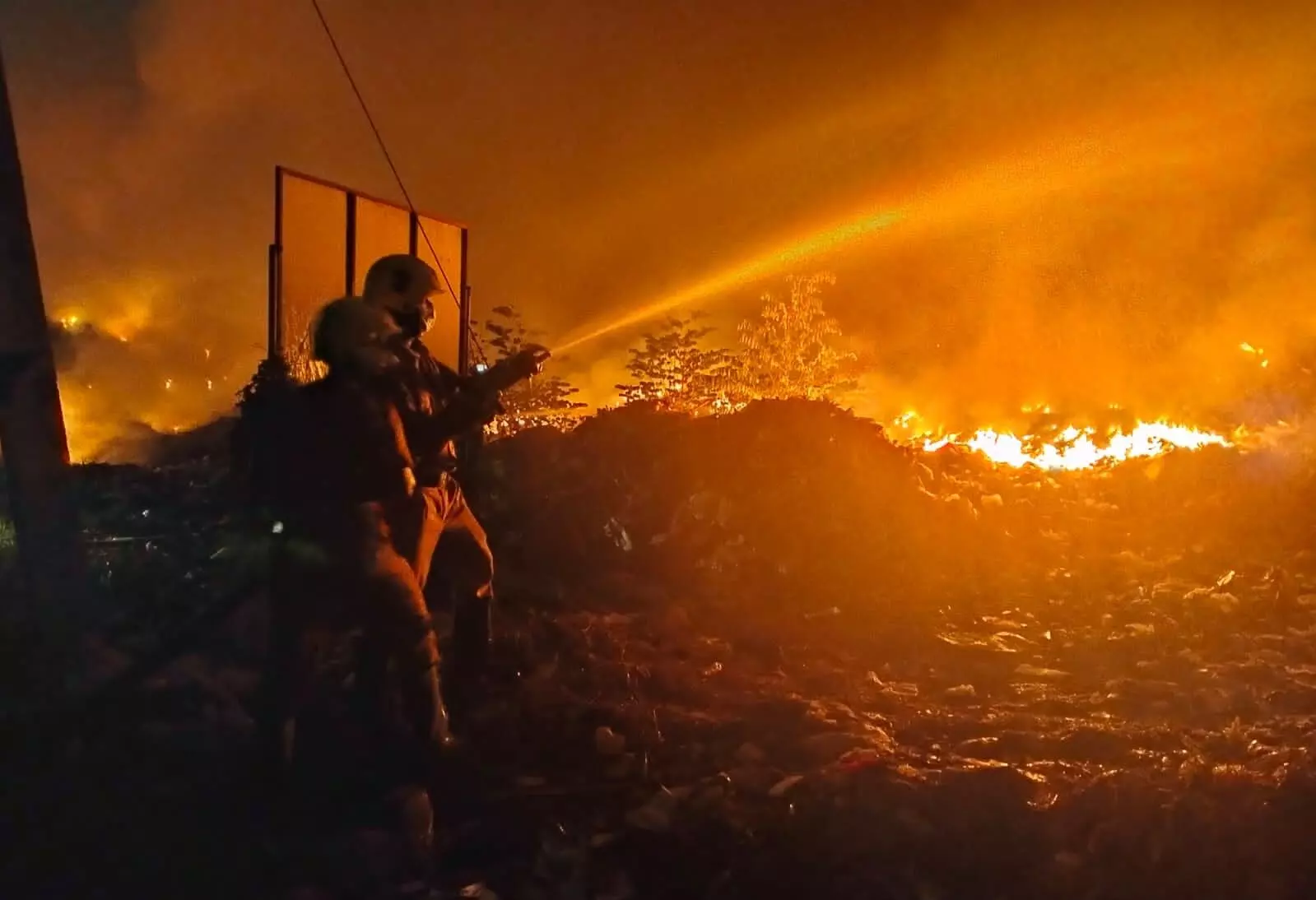Dereliction of duty?

As has always been the case with landfill fires, three weeks after a fire broke out at Brahmapuram site in Kochi, authorities are trying to assemble inconclusive pieces to complete the jigsaw — to what positive effect, nobody knows! In the meantime, people in the surrounding areas continue to grapple with toxic fumes. Landfills, or huge mountains of waste that they are, contain a layered accumulation of toxic gases on and beneath their surface. There is a vast multitude of such structures across India. Usually, the waste generated in mega cities land up in one of those filthy structures with a pungent smell. With the onset of summers, fires, small and big, become a commonplace at landfills. The Brahmapuram site in Kochi, too, has been a witness to severe fires in the past. Sadly, as the fires keep replicating themselves, the authorities do the same by exhibiting their negligence or ability in preventing such fires. In the aftermath of 2019 and 2020 fires at the site, CSIR, in collaboration with National Institute for Interdisciplinary Science and Technology, reported the release of highly toxic dioxins. The report also recommended a more elaborate study of the environmental impacts of the fires. Authorities’ failure in preventing and studying such incidents appears to be more telling when considered against the fact that the timing of such incidents has been more or less the same. It is unacceptable to keep allowing an anticipated failure to repeat itself again and again. Preventing or containing the impact of fires is just one part of the problem. Big fires manage to make headlines but the landfills, without being engulfed in fire, remain no less threat throughout the year. A broader challenge before the Kochi Municipal Corporation is to effectively manage the large chunk of waste that the landfill receives on a daily basis. The municipal corporation has been failing miserably in tackling this challenge. The first major challenge is segregation of waste at source. This, in fact, is the core of the issue. Segregation of waste before they are dumped at landfills will lead to far more smaller waste accumulation, as the recyclable waste and those capable of being utilised as Refuse Derived Fuel (RDF) would already be extracted. RDF mechanism entails burning of high calorific solid waste after appropriate shredding and drying, to produce energy. Once these two categories of waste are removed, landfills will only contain biodegradable and inert waste that are less harmful for the environment and comparatively uninflammable, and undergo decomposition in the soil. Unlike many other states across India, Kerala enjoys the reputation of successfully scaling the decentralised waste management process. It entails involvement of multiple stakeholders at various levels of waste generation and management, leading up to little accumulation at landfill sites. It is inexplicable as to why Kochi has not been able to replicate and scale the practice of decentralised solid waste management to date. The state government needs to take a serious note of the problem, and introduce necessary changes. There are numerous examples from across the country that have shown that with innovative policy interventions, the garbage mountains can be done away with. Reclamation of a large swath of land in Bhopal’s Bhanpur is a textbook example of such an intervention. As late as 2017-18, the pungent smell from the landfill reminded train passengers that they had entered Bhopal. Today, that site is a resplendent attraction for visitors. However, following such examples requires strong political will and determination, which seems to elude authorities in Kochi as for now. The National Green Tribunal (NGT), pointing out towards “an attitude of neglect by government authorities”, called for “soul searching and high-level enquiry to determine culpability in the larger public interest”. NGT has also imposed a penalty of Rs 100 crore on the civic body for its failure in waste management. The civic body, however, has expressed its intent to move to court against the NGT order, citing huge financial implications and justifying the problem as a result of two-decade long legacy waste management problem. The civic body’s failure in claiming responsibility for the fire only justifies NGT’s no-accountability assertion. Though the fire is doused and people in surrounding areas are hoping to recover against toxic gases, the path ahead for Kochi does not seem promising. There are no signs of doing what is completely doable.



